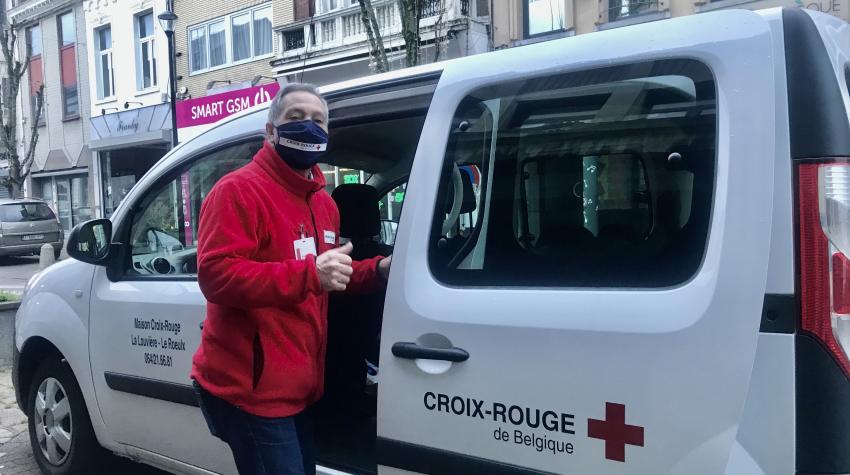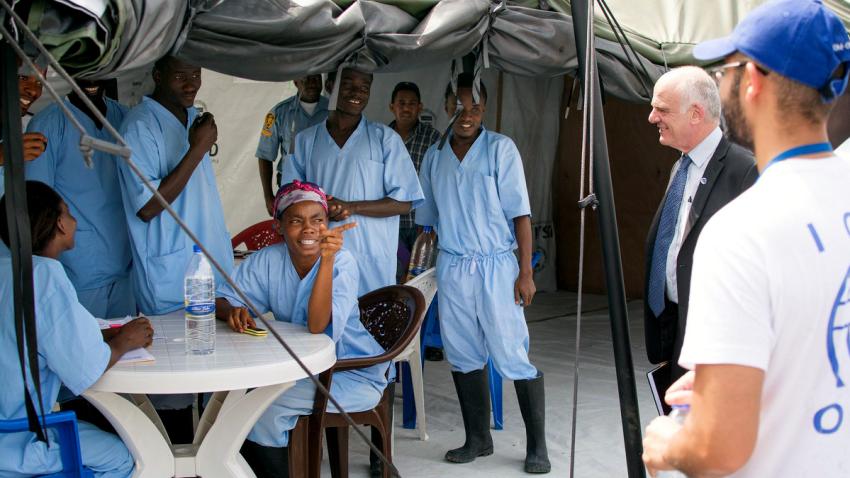At the heart of the COVID-19 pandemic, volunteers have demonstrated an exceptional display of solidarity across the world. Responding to calls for help from their local communities, they are everyday heroes.
“Volunteers have been assisting vulnerable groups, correcting misinformation, educating children, providing essential services to the elderly, and supporting front-line health workers,” said United Nations Secretary-General António Guterres on the occasion of International Volunteer Day on 5 December.
Wave of solidarity
A wave of solidarity has spread across Europe, including in France, where platform Tous Bénévoles (All Volunteers) witnessed a doubling in those registering in 2020, with 40,000 new volunteers. Coming from a wide range of backgrounds, volunteers responded to various needs: from helping the elderly, to supporting the disabled, migrants, school children as well as organzing food banks.
“It is one of the few positive effects of Covid-19,” says Isabelle Persoz, President of Tous Bénévoles. "More and more young people are signing up and sticking to volunteering," she adds. A website has been set up for them.
The International Committee of the Red Cross confirms the rise in numbers, with hundreds of thousands of new volunteers across the world, including 48,000 new sign-ups in the Netherlands and 60,000 in Italy.
“We are unable to respond [to all] the external volunteer offers we receive,” says Natacha Dewitte, Assistant Director in Human Resources at the Red Cross in French speaking Belgium.
Thanks to the influx of volunteers, the Red Cross has been able to maintain its relief and social efforts and support the triage of patients in front of hospitals and test centres. The organisation even received an unprecedented offer from a cinema production and casting company which helped install a food distribution hub.

Valérie Verbelen, a field volunteer for Red Cross Belgium, partcipates in a first aid training exercise at the centre in Céroux-Mousty, Belgium. Photo courtesy Valérie Verbelen
Unwavering optimism
Volunteers who have been stepping up to help during the pandemic have been a beacon of selflessness and optimism.
Valérie Verbelen, 50, has been a field volunteer for the Red Cross in Belgium since March 2019. Trained in first aid, she did not hesitate for one moment to give a helping hand to hospitals. “I felt it was important to give my time,” she tells UNRIC. Some paradoxes, however, remain difficult to overcome. “Usually, we get close to people, but now we are forced to keep our distance to protect both them and us.”
Belgian medical student Andrea Dehaene, 22, volunteers in a test centre for asymptomatic patients at Ghent University Hospital. She has no regrets. “You feel good knowing you are contributing to the fight against the pandemic. I am also learning new things at the same time,” she says.
Such inspiring efforts are to be admired. “Volunteers bring enormous extra value to society at a very low cost,” says Joost van Alkemade, Director and Community Manager of the Association of Dutch Voluntary Organisations (NOV).
A difficult choice between fear and solidarity
The pandemic has nonetheless also had the opposite effect: some senior citizens, who are particularly at risk, have been denied the chance of helping in the field over concerns for their health. Red Cross France subsequently lost 11,000 volunteers aged over 60 in one day. “For these volunteers, it is difficult not to be there in person because volunteering is a way to regain some social contact,” regrets Isabelle Persoz.
This obstacle did not stop Amédéo Miceli, 64, President of the Red Cross centre in La Louvière, Belgium. The centre, which distributes emergency packages and provides urgent food supplies, was overwhelmed at the start of the pandemic.
More and more people needing help
“During the first wave, the number of urgent requests for food aid exploded, increasing by 200-300% in just a few months,” says Miceli, who has not been daunted by fatigue or the virus. “I have been in the field since March. I am not afraid… It is exhausting, but we cannot walk away, we cannot turn our backs.”
With the continuing economic fallout from the crisis, the need for volunteers will not disappear. Food banks, for example, anticipate a huge increase in demand for food aid.
“Everyone can become a volunteer. The first thing you need is goodwill: every act is valuable,” concludes Isabelle Persoz.




